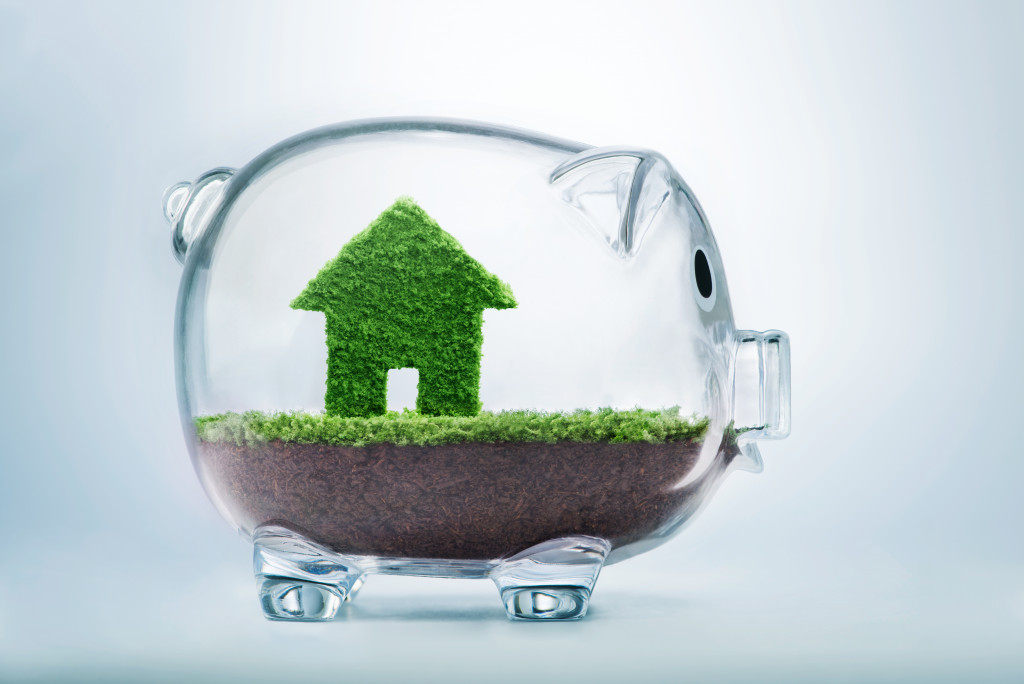Energy-efficient living means making changes and adaptations to your home that allow you to use less energy to do the same tasks. It will help to drastically reduce the amount of energy waste that your home produces. It is also a great way to save money. Leaking heat from insufficient window seals and insulation gaps could be the reason your power bills are so high. Patching these leaks and replacing the insulation can help your home utilize power more effectively and reduce your bills.
We live in a time when technological innovations are being made to help us achieve environmentally friendly lives. From the simple to the complex, there are several ways in which you can adapt your home to becoming energy efficient. Solar window films can allow you to improve the usability of your current windows without the financial output of getting new ones. They can cut utility costs by making it easier to cool your home and even blocks UV rays from fading upholstery.
Smart thermostats can help to regulate the temperature in different rooms and avoid heating rooms that have no occupants. They are controlled from your smartphone and can be controlled to turn off when no one is home and start heating the house just before your family returns.
Find out what changes you can make to help your home become Eco-friendly.
Lights
Replace all your light bulbs with LED lights. LED lights use up to 90% of the power they receive, do not generate waste heat, and have much longer lifespans than older style light bulbs. They are responsive and require minimum maintenance over time.
Cold Water Washing
Using hot water to wash your clothes uses much more electricity than using cold water. The clothes will be just as clean and you will have reduced your electricity bill a great deal. Dry the clothes on a clothesline rather than in the dryer. Dryers use much more electricity than washing machines. While it may be faster to use a dryer, sun-dried clothes have the added advantage of not needing dryer sheets.
Clean Filters
It may not always occur to us to clean the filters in the different machines in our house but dirty filters can slow their efficiency. Cleaning the filters regularly allows them to do their work efficiently and lowers the risk of breakdowns and too much energy consumption to accomplish their tasks.
Defrosting Appliances
This applies to your refrigerator and freezer. Ice buildup in these appliances can reduce their efficiency a great deal and compromise your food safety. Defrost them as soon as the ice buildup becomes noticeable.
This is also a good way to ensure that you are getting the maximum usage out of the space within. Both these appliances work best when they are at capacity. Being under-filled or overfilled can cause airflow issues and make the appliance work harder and use more electricity.
Cooking

Energy Star microwaves use less energy to cook a meal than a gas stove. Ovens take longer to cool food when you open the door during the process. Consider downgrading to a smaller oven as well. Larger ovens use more energy as they have to heat the entire interior, a small oven would have less area to heat and would thus use less power.
Turn off the oven when it is close to the cooking time. The ambient heat will continue to cook the food and the oven will use less electricity.
Turn Off Switches
Leaving your appliances connected to the electricity by having the switch on even when not in use can drain a great deal of power. Turn off every switch that powers something that is not in active use. Refrigerators always need to be one, but you can switch off microwaves, coffee machines, and rice cookers.
Desktop computers may need a constant power supply depending on what you are using them for but it is best to only switch on power to a laptop when needed. Phone chargers should also be disconnected from the electricity to help increase their usage.
Turn off ventilator fans in bathrooms and kitchens when the rooms are not in use. This is helpful to reduce electricity as well as stop the flow of outside air coming in unnecessarily.
Low-Flow Bathrooms
Low flow showerheads and low flow toilets help to improve your home’s water efficiency. They use half the gallons of water as a regular showerhead or toilet. These bathroom fixtures also use less power to function which means they will lead to savings on your power bills.
Consider starting big by installing solar panels on your roof. This is a modification that may not be cheap at the moment but can save you money in the long term. Solar panels can be used to heat water, allowing your family to enjoy hot water showers without high power bills. If you install enough solar panels you can reduce your reliance on the power supply and in turn reduce your power bills a great deal. There are also tax incentives to installing solar panels on your home.

